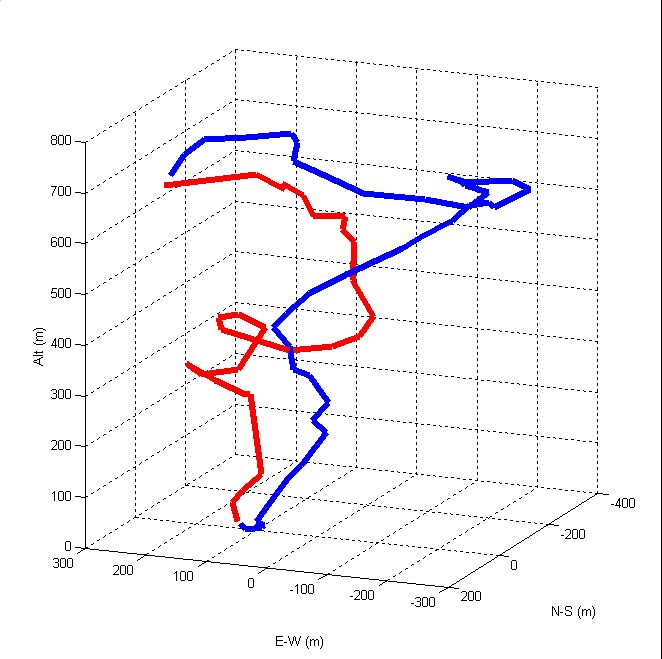To the casual observer, the work comp bill review process is pretty simple:
- make sure the procedure codes are appropriate for the injury,
- compare the billed codes to the state fee schedule/allowable amount,
- apply any reimbursement rules, and you’re done.
The real story is far more complex. It’s no longer just about making sure the claim exists, the body part matches the medical report, and the procedure makes sense for the injury.
Reimbursement has gotten enormously complicated. Coding and code modifiers, bundled payment logic, clinical appropriateness, duplicate identification, relatedness, location of service verification, surgical groupers are just a few of the issues and considerations often unappreciated – and not considered – during the bill review process.
Far from A to B, it looks more like this – and is unique for some bills…
While some will say this is “not new news”, what is new is the constant focus and attention required to stay abreast of the ever-more creative and sophisticated “revenue maximization” industry. (That’s the label for provider-focused efforts to get as many payer dollars as possible)
I’ve taken a close look at several approaches/techniques intended to help payers keep pace with provider billing. One that caught my eye is Equian’s Clinical and Coding Logic. The folks at Equian were kind enough to spend a lot of time educating me on the research behind their Clinical & Coding Logic (CCL) solution, how it is used, and where it can have the most impact.
CCL has it’s roots in a commercial health application purchased by Equian some time ago, an application that has been adapted for use in workers’ comp. Building on that application, the company continues research to identify emerging billing practices, and develop identification techniques and rules to address those practices; to date more than 100 additional rules and millions of additional edits not found within typical bill review engines are in place.
There’s a LOT behind CCL; while I can’t provide more than a superficial overview, here’s a few things that popped up for me.
- Diagnosis and procedure codes with a “low-likelihood”of occurring in work comp are flagged; when they appear medical records are reviewed in detail
- Experimental and Investigational services typically fall thru the cracks in routine bill review processes; these have been identified and payment logic developed.
- CCL includes identification of services that appear to be body-part related but actually address pre-existing conditions
- Extensive research on the notorious 59 modifier enables reductions for inappropriate charges associated with surgery
Equally important is Equian’s ongoing research and analysis to identify emerging and previously unseen billing practices, development of identification techniques and rules, and evaluation of results.
CCL is a supplement to, not a substitute for the regular bill review process and technology. It requires data transmission to and from Equian via secure link, similar to PPO pend-and-transmit processes. Results shared by Equian demonstrate CCL is most useful for high-volume bill operations. Across the board, reductions average about $45 per bill (I was not able to independently verify savings or impact, and note that results are almost certainly highly contingent on each payer’s unique situation.)
What does this mean for you?
Never stand still.





I don’t have a dog in this race, so I can say without reservation that Equian is an order of magnitude above its competition in this space. Truly remarkable what they do
Dear Mr. Paduda,
I have been subscribing to Managed Care for quite a while and have learned from many of your articles.
However, today was quite exciting to have you reference the Equain CCL Team as I am an Equian employee. I work closely with the CCL Team and am proud of all they have accomplished and contributed to Equian’s success.
Equian is a great company to work for!
Thank you!
While I am not in WC I agree entirely that providers are endlessly creative in billing – and most bill review processes are at least one step behind in catching up with the providers in this process. I will give Equian a call based on this column – thanks for mentioning them.
Joe,
I appreciate how you articulate the complexity of some medical bills and the review process. Comparing the A – B line to the graphic with the blue and red lines is well done.
As you suggest, a meaningful portion of bill review is beyond commoditization; not all fee schedule application is the same. Ranking and selecting bill review vendors solely based on price point, therefore, is unlikely to produce the best outcome.
Buyers should also consider at least two other key factors when evaluating work comp bill review vendors:
1. The system, in line with your post. Ideal systems should be ever-expanding, rules-based systems that route and flag bills based on jurisdiction, codes and patterns to experts in centers of excellence, and
2. Human expertise to review routed and flagged bills. Bill review automation will typically trail revenue maximization methods, and won\’t catch all errors either. For some bills, human judgment is needed. Key resources are local surgical nurses and expert coders strategically located across the country to ensure jurisdictional expertise and intimate knowledge of the gray areas and nuance around their respective state fee schedules.
In my view, Robust System + Local Experts + Price = optimal bill view results and maximum ROI.
Matt – very well said. Thanks for the comment.
Joe
Matt, you know your stuff. So true.